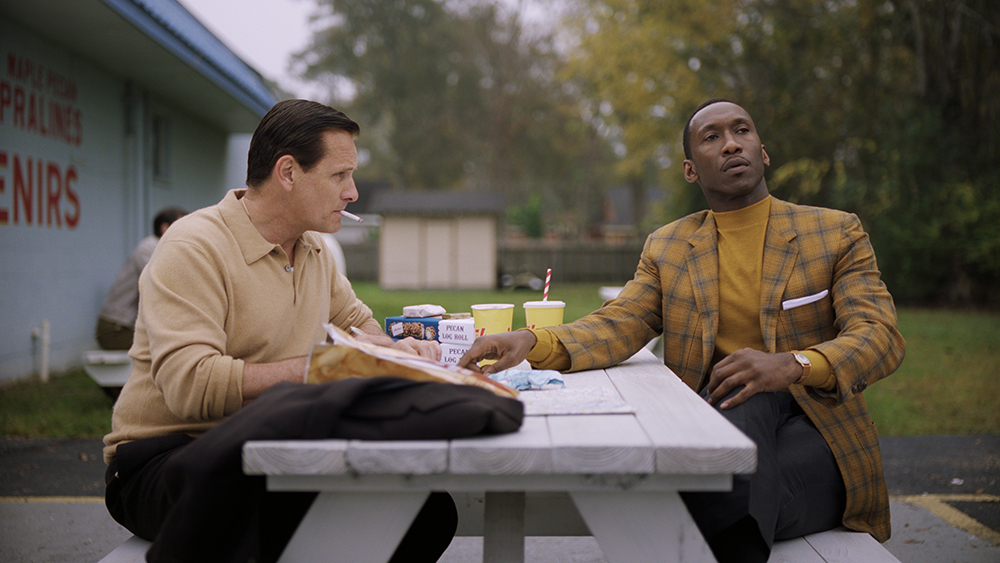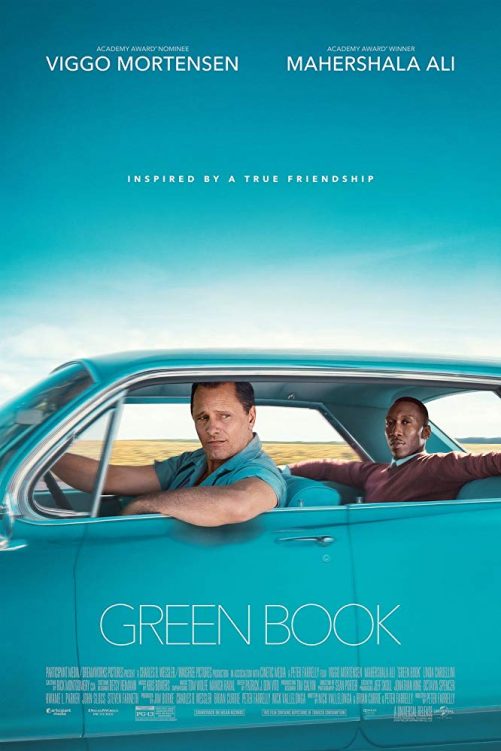Green Book

The Negro Motorist Green Book, more commonly known as the Green Book, was a travel guide published from 1936 to 1966 that listed businesses accepting the custom of African Americans, meant as a social aid to help them navigate racial segregation in the south.
Today, the concept of green books seems hard to believe, and yet during the Jim Crow era in the United States, the racial divide in the nation truly did require such a form of information to ensure the safety of travelling African Americans. Peter Farrelly’s movie, simply titled Green Book, explores the relationship between two men of different races, unified through work and taking the guide’s contents as gospel as they travel through the Deep South in 1962. Presenting a true story within an enlightening and educational context, the director’s main task is to stay faithful to the source material in order to authenticate the validity of the film’s message, whilst also avoiding any claims that his feature is simply a reverse Driving Miss Daisy.
In need of employment when the club he works for temporarily closes, tough-talking Italian American Tony Lip (Viggo Mortenson) avoids the darker deeds of the mobster underworld by taking a job as a driver for Dr Donald Shirley (Mahershala Ali) – an African American classic pianist world renowned for his talents on the ivory – as he embarks on a tour of the Deep South. Given that at this time such a journey requires a level of security, Dr Shirley insists on Tony’s service as they embark on their two-month tour – and rightly so, as before too long, the pair begin to endure a series of racial attacks that highlight the severity of segregation in the south. During their mutual learning process, both men soon develop an unexpected bond and appreciation for each other, one teaching the art of the social elegance, the other of living life to the fullest, all the while confronting racism and adversity within each town.
Two well-established actors portray two extremely different characters to brilliant effect. That is probably the simplest way to analyse Mortensen and Ali’s performances in the picture. Never one to shy from a challenge, it is wonderful to see the former push his abilities to the limit, gaining a significant amount of weight for the role and manifesting a thick Bronx tongue and persona that create an honest and genuine character you can truly believe in. Paired with Ali’s sophisticated and complex Don, the duo deliver devastating realism when engaging in altercations on the road, passionately depicting differing perspectives with poignancy and engaging legitimacy. Both completely deserve their Oscar nods and we shall have to wait and see if Mortensen will finally be rewarded with the award that has so often evaded his grasp.
The plot structure of the movie does serve one sole purpose, shown primarily through numerous racial encounters, with other elements painted with a hastened brush. It would have been nice to feature a more prominent female character in the film – although limitations are naturally placed upon this element due to the true nature of the story – and the big second-act reveal comes as a relative surprise that is soon after forgotten. Nevertheless, as a whole the movie packs enough heat to create an uncomfortable ambience for both character and audience as the racial divides worsen, presenting powerful message to adhere to and a riveting story to observe. A fabulous periodic soundtrack featuring jazz, crooners and artists of the time is combined with the classical compositions played so elegantly by Dr Shirley, creating a wonderful auditory experience throughout and ultimately making Green Book a lovely story of companionship in a period of eye-opening, immense hardship.
Guy Lambert
Green Book is released nationwide on 1st February 2019.
Watch the trailer for Green Book here:

























Facebook
Twitter
Instagram
YouTube
RSS